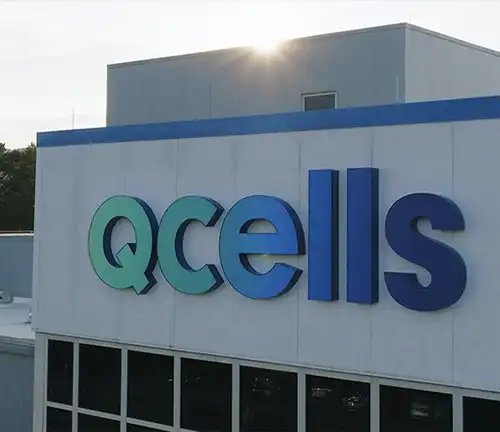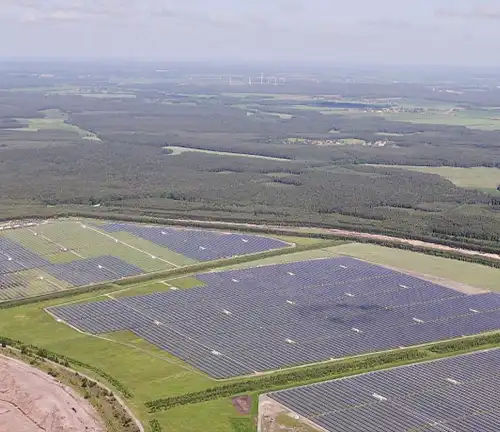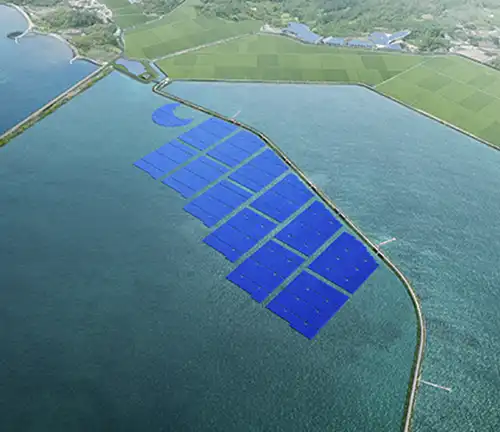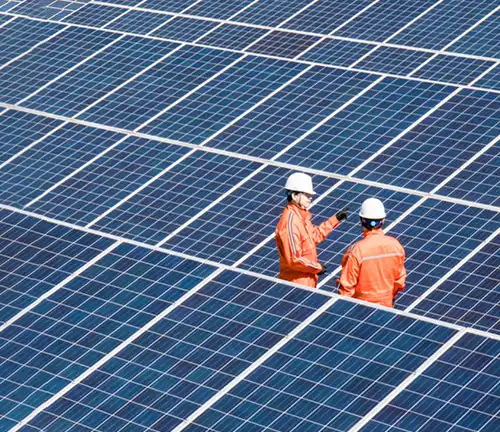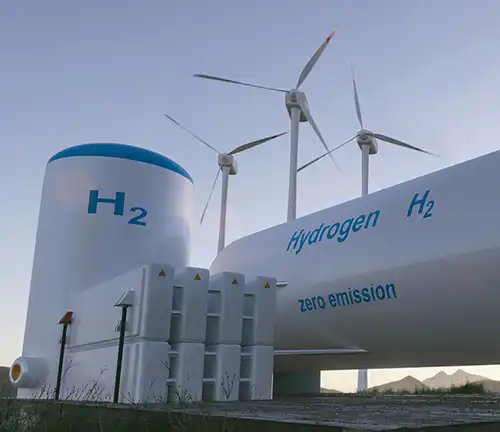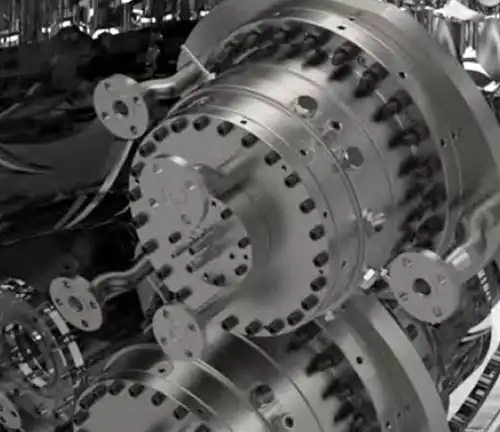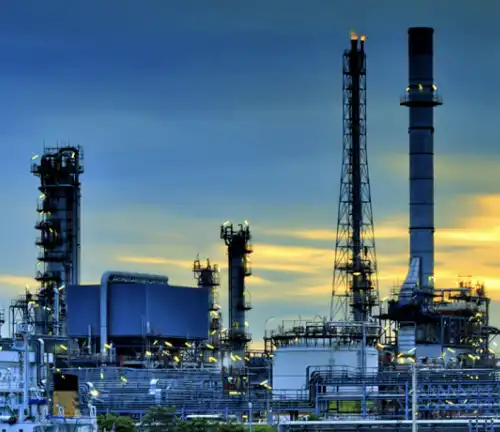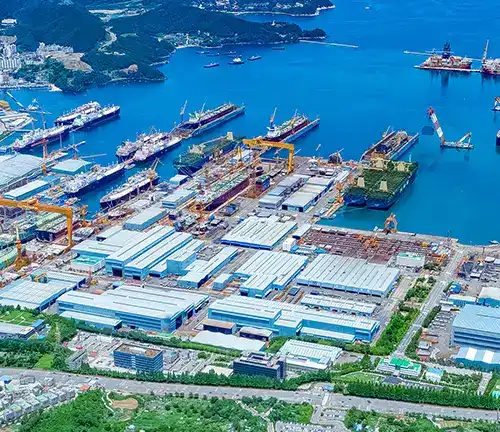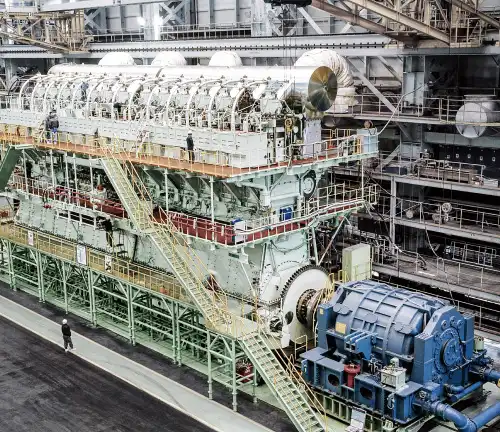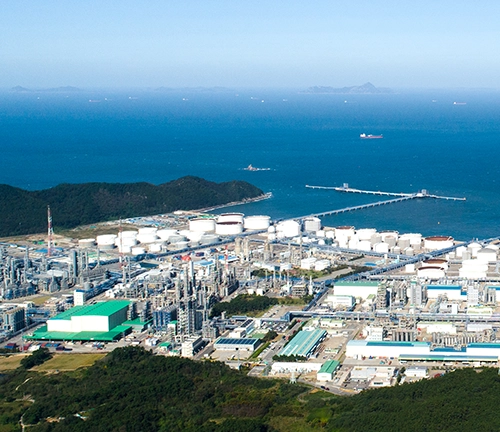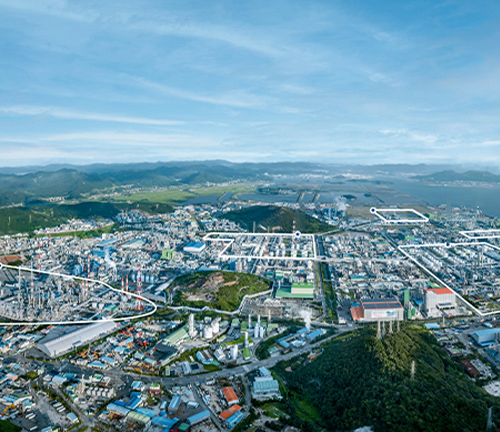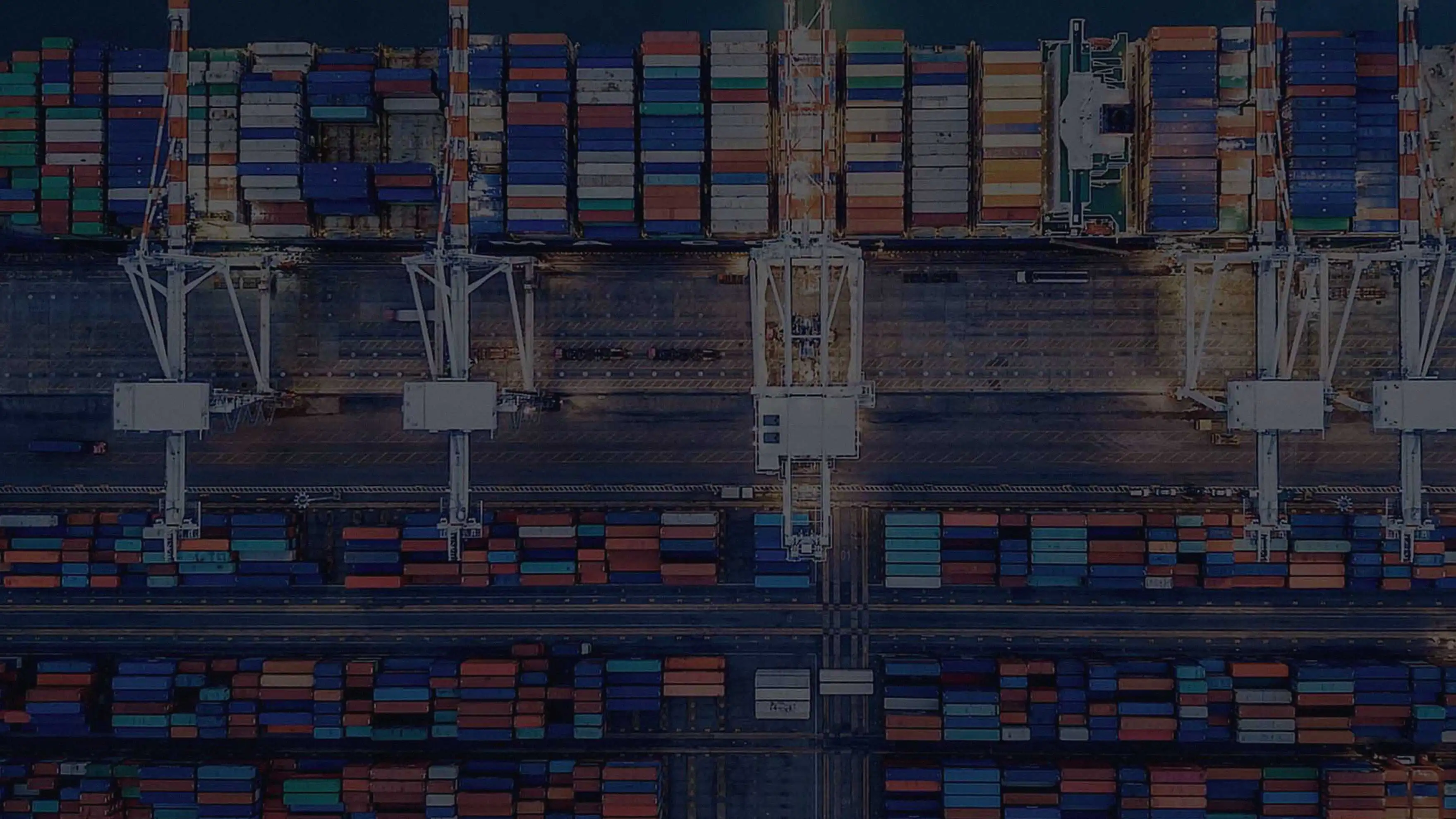
Energy &
Ocean Solutions
We drive the energy transition forward
with a diverse
portfolio of integrated innovations
What We Do
Our comprehensive range of energy solutions
includes solar, hydrogen, and wind, spanning the entire value chain.
We aim to drive the energy transition forward by delivering flexible,
fundamental innovations worldwide.
includes solar, hydrogen, and wind, spanning the entire value chain.
We aim to drive the energy transition forward by delivering flexible,
fundamental innovations worldwide.
Solar
As one of the world’s top solar brands,
we provide reliable end-to-end solar solutions
Hanwha Qcells holds the No. 1 U.S. market share in residential solar modules as of Q2 2025.
Renowned for our advanced technology and product quality, we manufacture one in three solar panels installed on rooftops in America. We’re
expanding our global clean energy portfolio with solutions that span solar modules, energy storage systems (ESS), and the development, construction,
and operation of solar power plants, as well as power retail and solar financing.
Through a first-of-its-kind $2.5 billion investment, we have established the largest fully integrated, silicon-based solar supply chain in U.S. history.
We’ve also achieved a world record in perovskite-silicon tandem cell efficiency on a full-area, commercially viable format — a breakthrough that brings
next-generation solar technology closer to mass production and enhances energy security.
Renowned for our advanced technology and product quality, we manufacture one in three solar panels installed on rooftops in America. We’re
expanding our global clean energy portfolio with solutions that span solar modules, energy storage systems (ESS), and the development, construction,
and operation of solar power plants, as well as power retail and solar financing.
Through a first-of-its-kind $2.5 billion investment, we have established the largest fully integrated, silicon-based solar supply chain in U.S. history.
We’ve also achieved a world record in perovskite-silicon tandem cell efficiency on a full-area, commercially viable format — a breakthrough that brings
next-generation solar technology closer to mass production and enhances energy security.
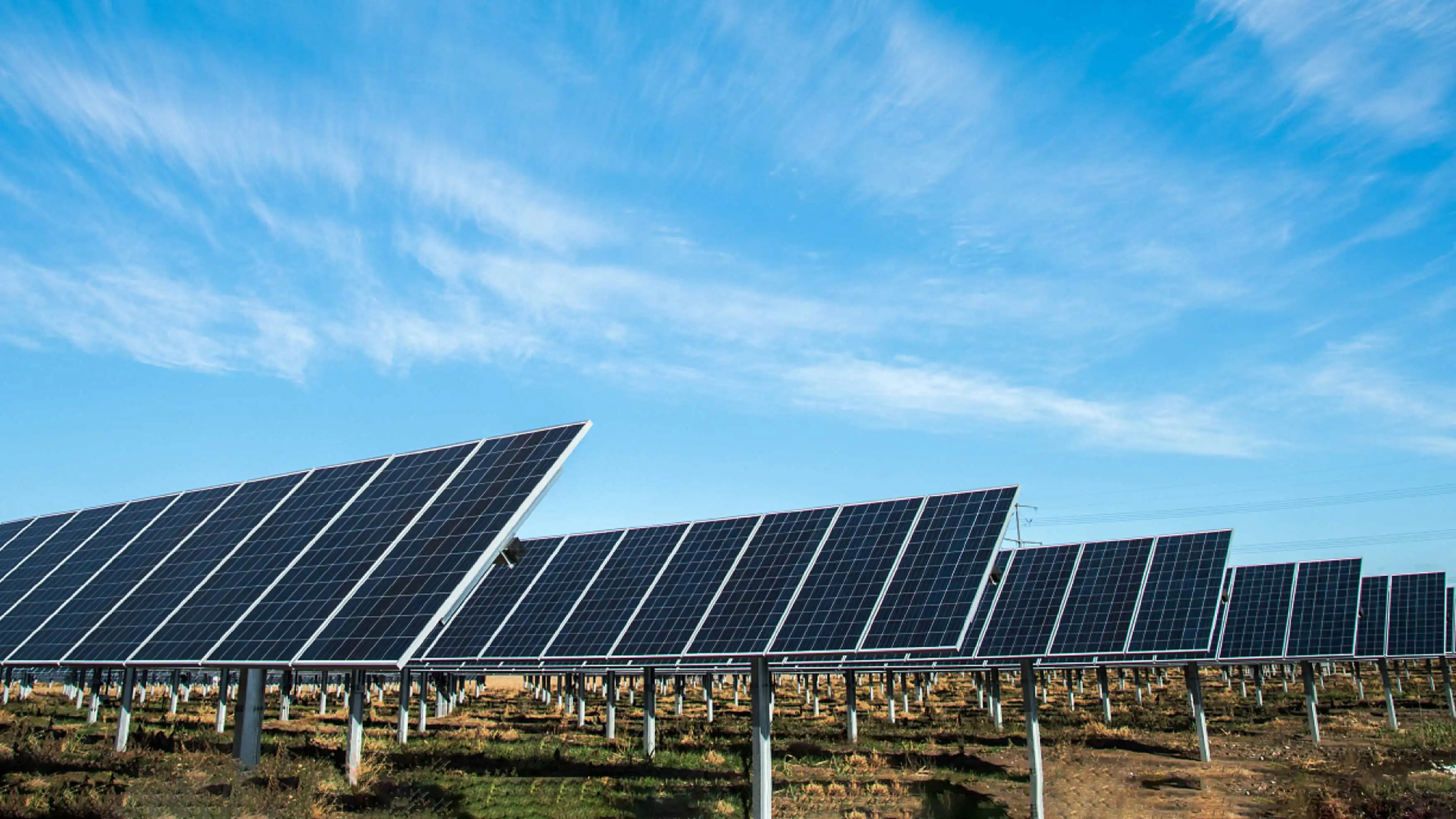
Our expertise
- Solar cells and modules
- Energy systems solutions
- Solar power generation
- Solar power plant operations and management
- Virtual power plant operations and management
- Energy retail
- Solar financing
Hydrogen
We’re driving the energy transition
by building out the hydrogen economy
Hanwha believes in a holistic approach to energy and is pioneering future fuels such as hydrogen — a promising energy source for achieving
decarbonization. Our investments span the entire hydrogen value chain, from production to storage, transport, power generation, and utilization. This
includes advancing hydrogen-based power generation by developing ammonia cracking technology and commercial fuel cells. We are also developing
marine hydrogen transport technologies and fuel cells for ships and submarines, while laying the foundation for a long-term hydrogen supply chain.
decarbonization. Our investments span the entire hydrogen value chain, from production to storage, transport, power generation, and utilization. This
includes advancing hydrogen-based power generation by developing ammonia cracking technology and commercial fuel cells. We are also developing
marine hydrogen transport technologies and fuel cells for ships and submarines, while laying the foundation for a long-term hydrogen supply chain.
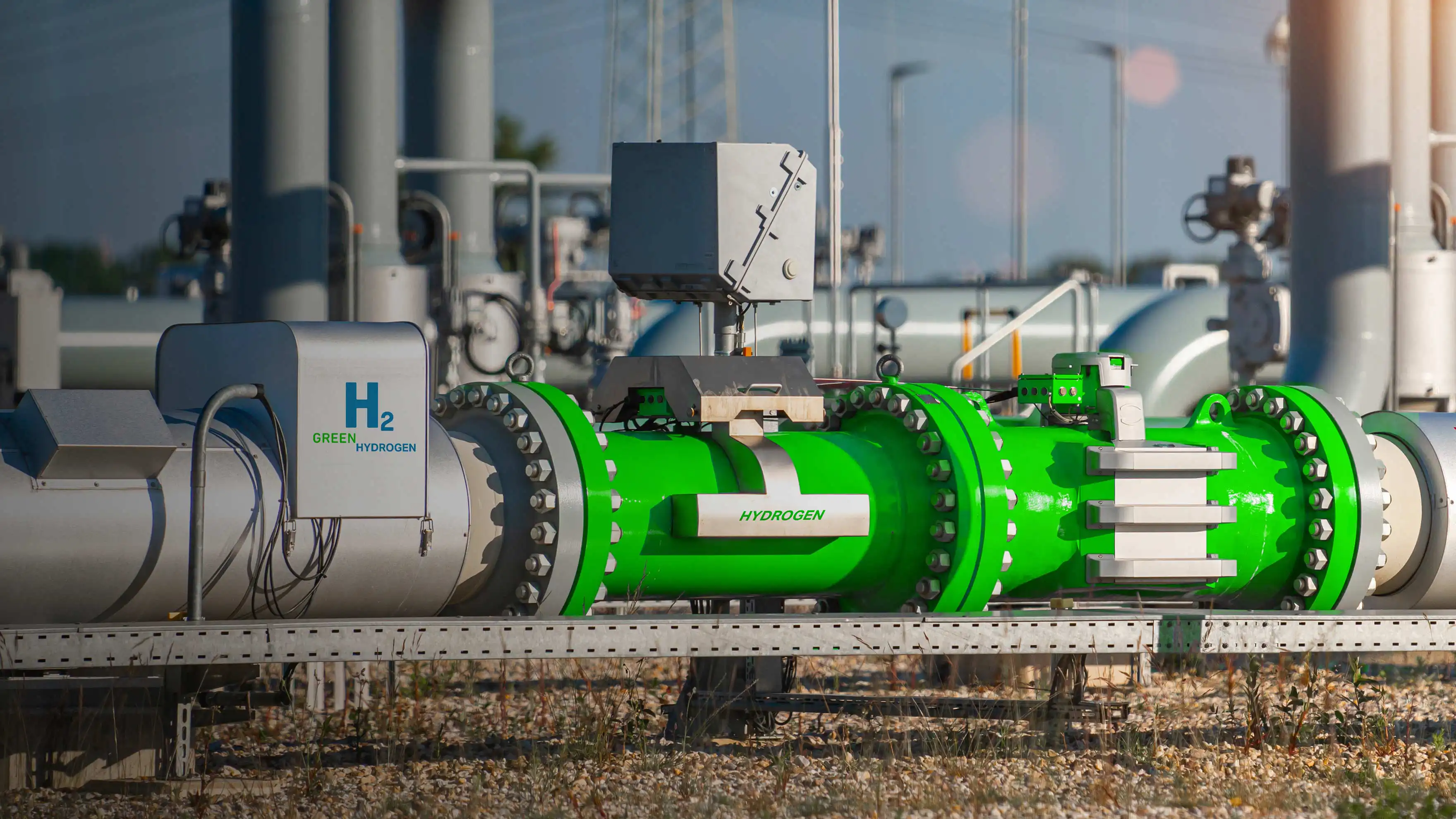
Our expertise
- Clean ammonia production, cracking, and commercialization
- Hydrogen storage and delivery solutions, and clean hydrogen ammonia delivery
- Green hydrogen production using anion exchange membrane (AEM) electrolysis technology
- Hydrogen power generation
- Hydrogen-powered air mobility
Wind
To support the global shift toward carbon neutrality,
we’re investing in wind power and
helping advance clean energy infrastructure
Committed to expanding renewable energy, we’re contributing to decarbonization goals by enhancing our role in green infrastructure development.
To take renewable energy to new heights, we are expanding our global presence in offshore wind and accelerating our growth by leveraging our
capabilities as an offshore solutions provider. We are also actively pursuing the construction of wind turbine installation vessels (WTIVs) to secure
dominance in the rapidly growing offshore wind market.
To take renewable energy to new heights, we are expanding our global presence in offshore wind and accelerating our growth by leveraging our
capabilities as an offshore solutions provider. We are also actively pursuing the construction of wind turbine installation vessels (WTIVs) to secure
dominance in the rapidly growing offshore wind market.

Our expertise
- Offshore wind farm development
- Offshore wind engineering, procurement, construction, installation (EPCI)
- Offshore wind solutions: Wind turbine installation vessels (WTIV), offshore substations (OSS), floater technology
Marine Solutions
As an industry trailblazer, we innovate
smart, future-ready marine solutions
At Hanwha, we’re expanding the use of alternative energy sources such as hydrogen and ammonia across marine applications while enhancing our
energy value chain to encompass production, storage, and transportation. As a world-class global shipbuilder, Hanwha is developing carbon-free ship
solutions powered by ammonia gas turbines, alongside dual-fuel engines that operate on conventional fuels combined with lower-carbon options like
LNG and ammonia. We are also advancing digital and smart shipbuilding technologies that improve long-term performance, efficiency, and adaptability
across the maritime sector.
In November 2024, Hanwha acquired Dyna-Mac Holdings and relaunched it as Hanwha Offshore Singapore in early 2025, strengthening its offshore
and marine energy solutions and advancing its role as a comprehensive engineering, procurement, construction, installation, and operation (EPCIO)
provider for renewable energy and marine facilities.
energy value chain to encompass production, storage, and transportation. As a world-class global shipbuilder, Hanwha is developing carbon-free ship
solutions powered by ammonia gas turbines, alongside dual-fuel engines that operate on conventional fuels combined with lower-carbon options like
LNG and ammonia. We are also advancing digital and smart shipbuilding technologies that improve long-term performance, efficiency, and adaptability
across the maritime sector.
In November 2024, Hanwha acquired Dyna-Mac Holdings and relaunched it as Hanwha Offshore Singapore in early 2025, strengthening its offshore
and marine energy solutions and advancing its role as a comprehensive engineering, procurement, construction, installation, and operation (EPCIO)
provider for renewable energy and marine facilities.
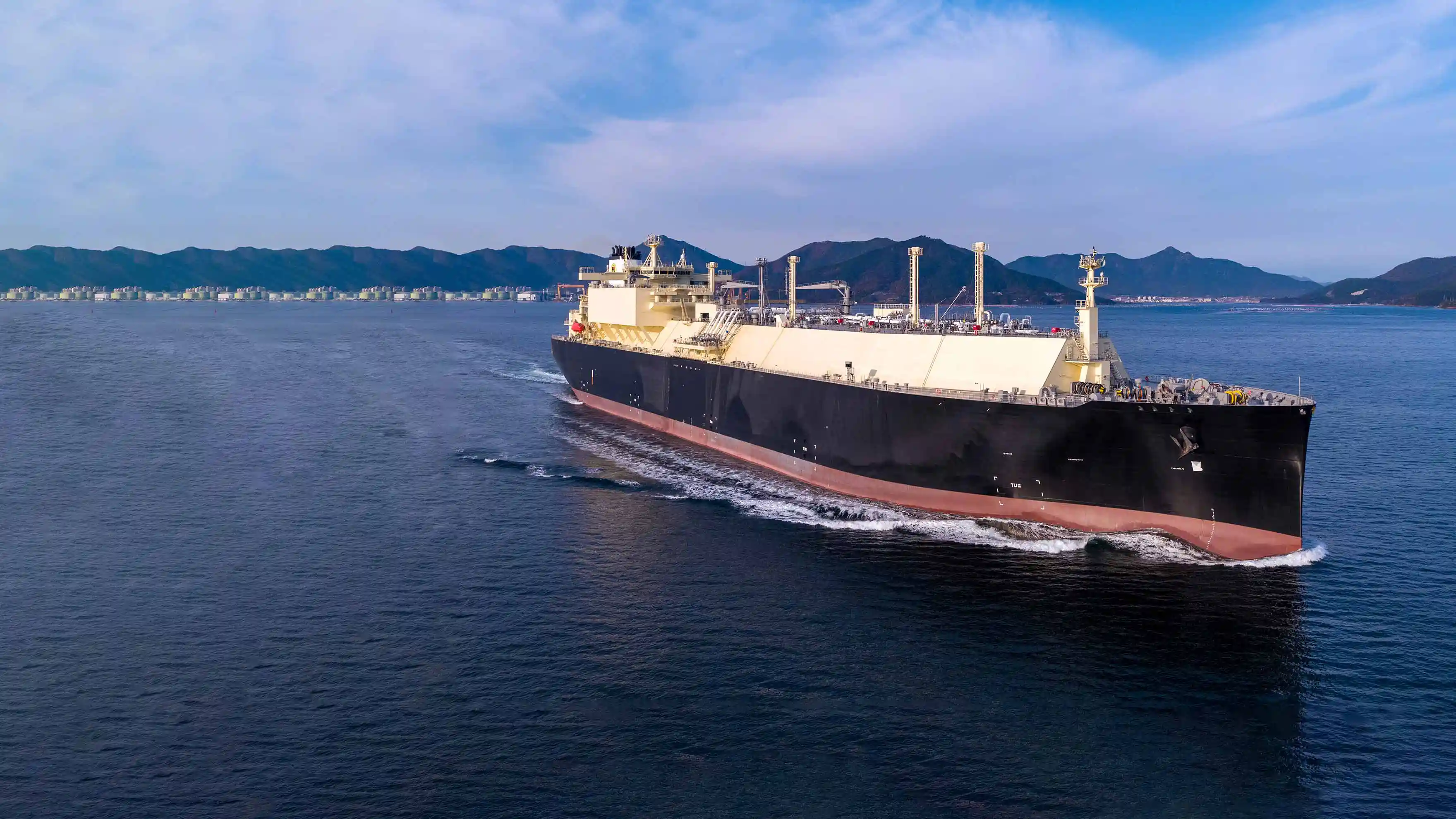
Our expertise
- Very large ammonia carriers (VLACs)
- Ammonia-fueled gas turbine LNG carrier design and supercritical carbon dioxide (sCO2) power systems
- Ultra large liquefied carbon dioxide (LCO2) carriers
- Fuel gas supply systems (FGSS) and partial regasification system (PRS) LPG carriers
- Large crude oil carriers (VLCCs)
- Floating LNG facilities
- EPCIO services for marine facilities
Bridge Solutions
As a provider of comprehensive energy solutions,
we offer strategic flexibility and help communities
seamlessly bridge energy gaps
Energy needs are community specific, which is why we continue to diversify our energy business portfolio. To help
communities bridge energy gaps, we’re streamlining production, storage, and transportation across our integrated LNG
value chain. We’re also adopting hydrogen gas turbine technology to transform potentially stranded fossil
fuel assets into sources of eco-friendly power generation. In 2023, we achieved the world’s highest hydrogen co-firing
rate of 60% on an 80-MW gas turbine with reduced CO₂ and NOx emissions. We have since demonstrated complete hydrogen
combustion and continue to expand into the global retrofit market.
communities bridge energy gaps, we’re streamlining production, storage, and transportation across our integrated LNG
value chain. We’re also adopting hydrogen gas turbine technology to transform potentially stranded fossil
fuel assets into sources of eco-friendly power generation. In 2023, we achieved the world’s highest hydrogen co-firing
rate of 60% on an 80-MW gas turbine with reduced CO₂ and NOx emissions. We have since demonstrated complete hydrogen
combustion and continue to expand into the global retrofit market.
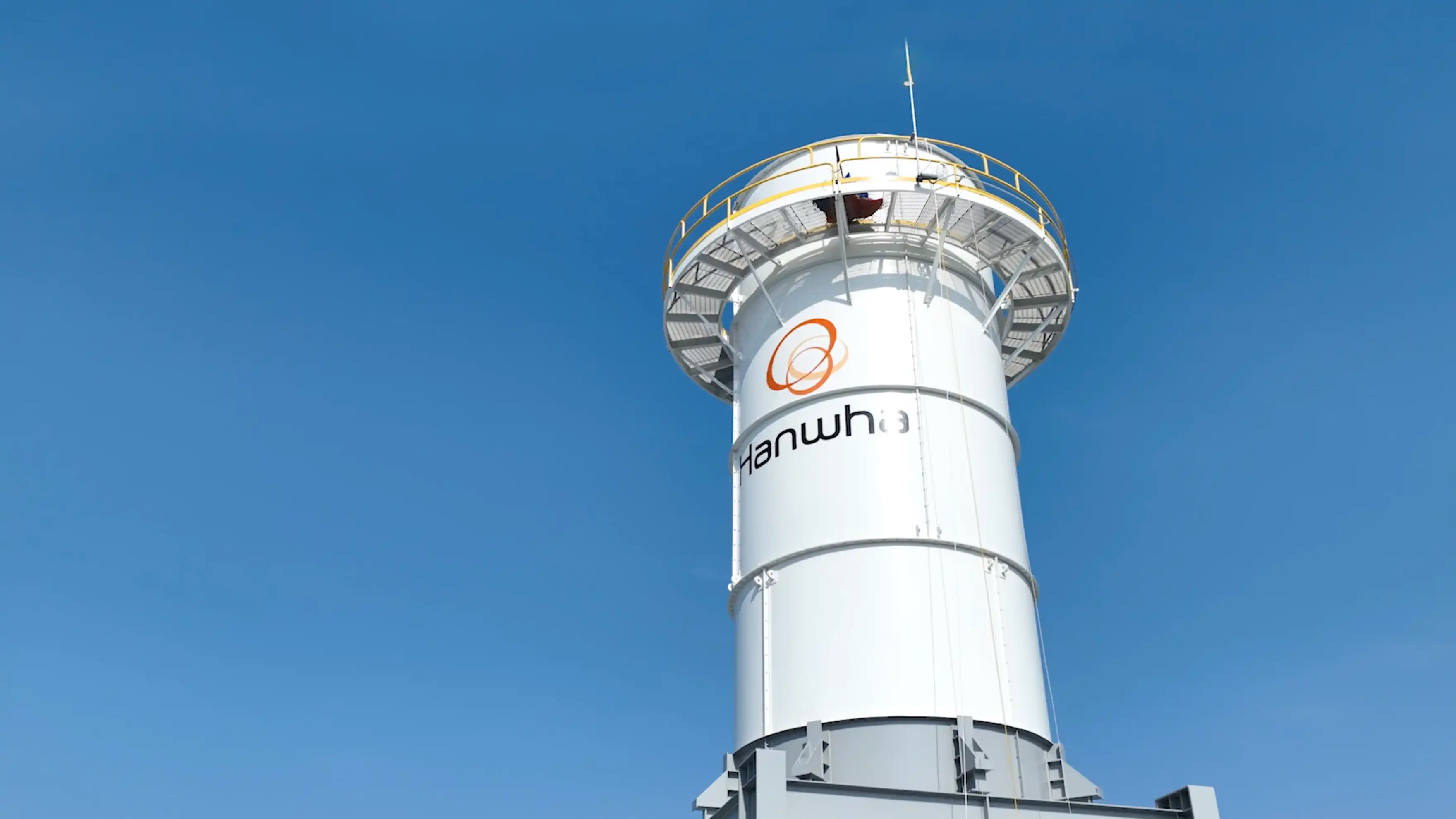
Our expertise
- Hydrogen co-firing power generation
- LNG power plant construction
- Development of LNG carriers and offshore plants
Materials
We produce differentiated high-value and
eco-friendly materials for a circular economy
As industries strive for carbon neutrality, Hanwha is leading the way with sustainable ways to manufacture essential
materials, having achieved the International Sustainability & Carbon Certification (ISCC) PLUS recognition for ten products
including caustic soda and chlorine. We also supply energy resources and materials such as silicon- and nitrogen-based
materials to partners that make semiconductors and batteries. Thanks to our investment in REC Silicon, we use
hydroelectric power to produce clean polysilicon for the solar and electronics industries. We’re also making strides in
resource sustainability, plastics-to-chemicals (PTC) technology, and eco-friendly materials as we pursue circularity in industry.
materials, having achieved the International Sustainability & Carbon Certification (ISCC) PLUS recognition for ten products
including caustic soda and chlorine. We also supply energy resources and materials such as silicon- and nitrogen-based
materials to partners that make semiconductors and batteries. Thanks to our investment in REC Silicon, we use
hydroelectric power to produce clean polysilicon for the solar and electronics industries. We’re also making strides in
resource sustainability, plastics-to-chemicals (PTC) technology, and eco-friendly materials as we pursue circularity in industry.

‘Source: REC Silicon’
Our expertise
- Solar-grade polysilicon and silane gas for batteries and semiconductors
- Ammonia, nitric acid, and nitrogen-based products
- Polyolefin (PO) products, including LDPE, EVA, LLDPE, HDPE, wire and cable (W&C) compounds, and H-HCR
- PVC, chlor-alkali (CA) products, including caustic soda (NaOH) and chlorine (Cl2)
Energy & Ocean Solutions Spotlight
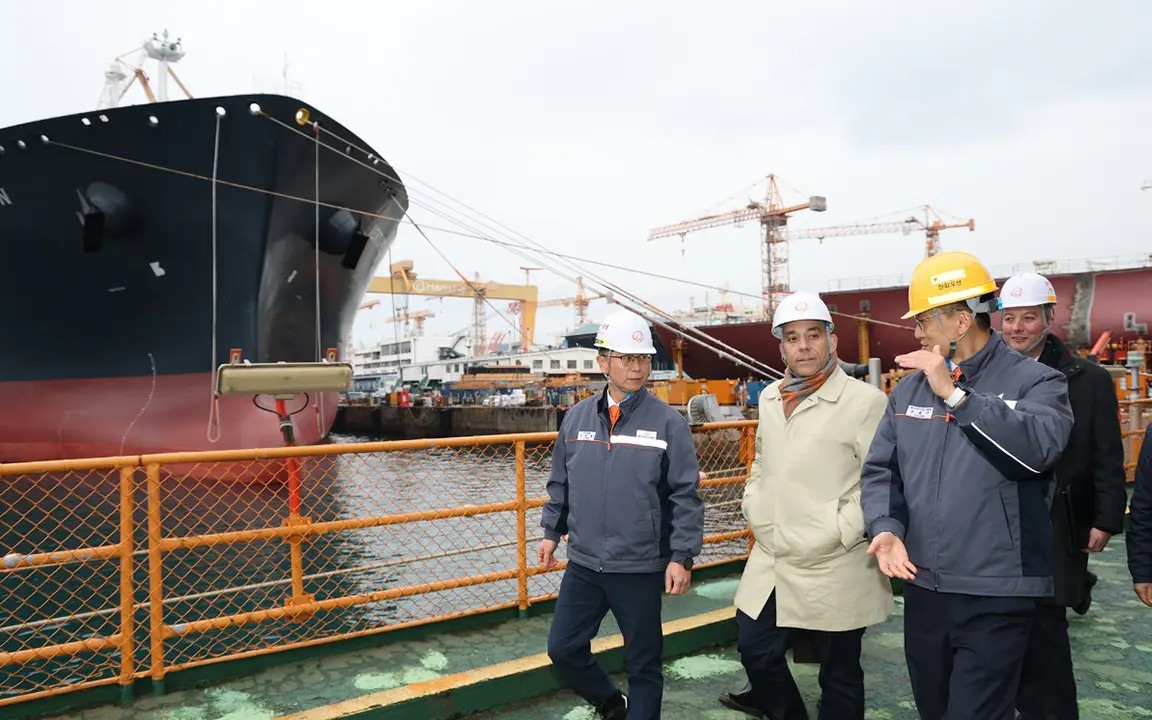
Press Release
February 12, 2026
Quebec’s minister of international relations visits Hanwha Ocean to explore industrial cooperation opportunities related to the Canadian Patrol Submarine Project
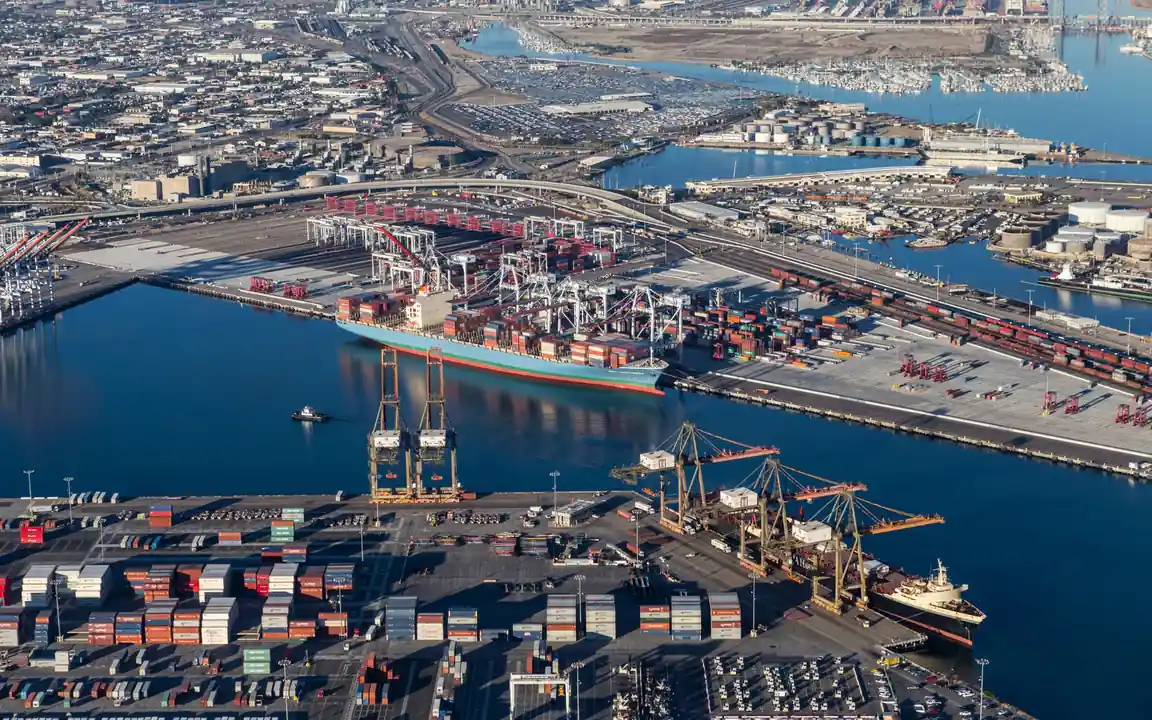
Feature Story
February 9, 2026
Advancing maritime decarbonization through technology, infrastructure, and partnership
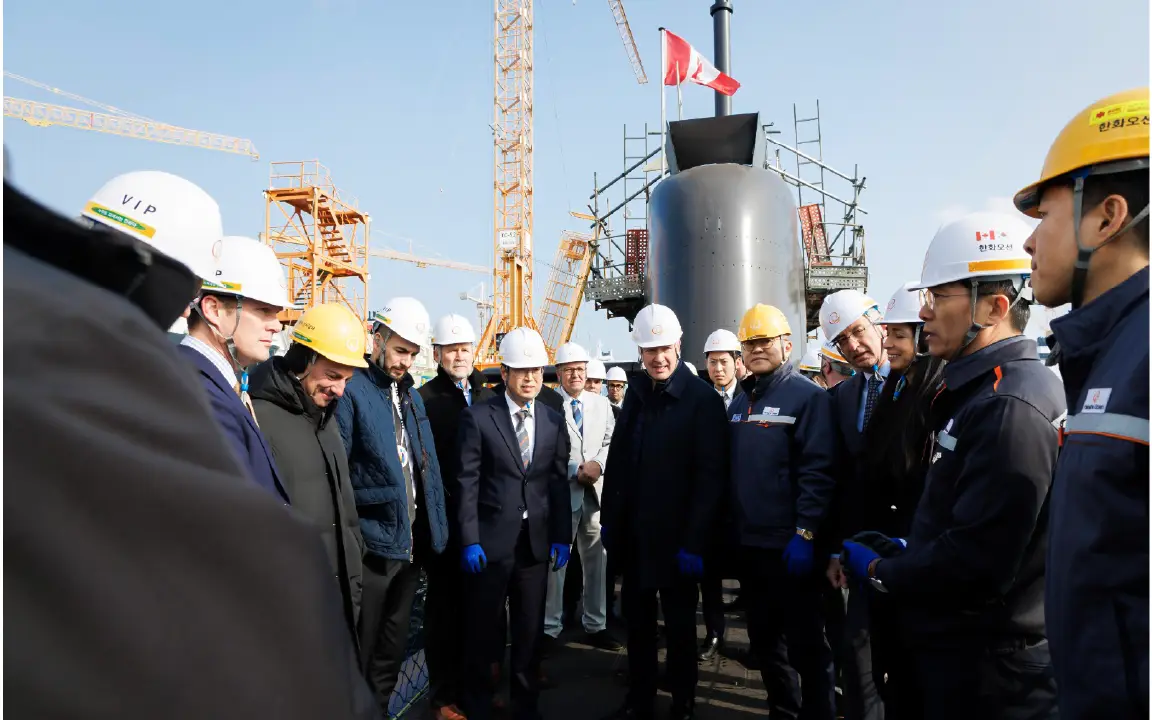
Press Release
February 9, 2026
Canadian shipyards visit Hanwha Ocean to discuss CPSP collaboration, sustainment and MRO opportunities


